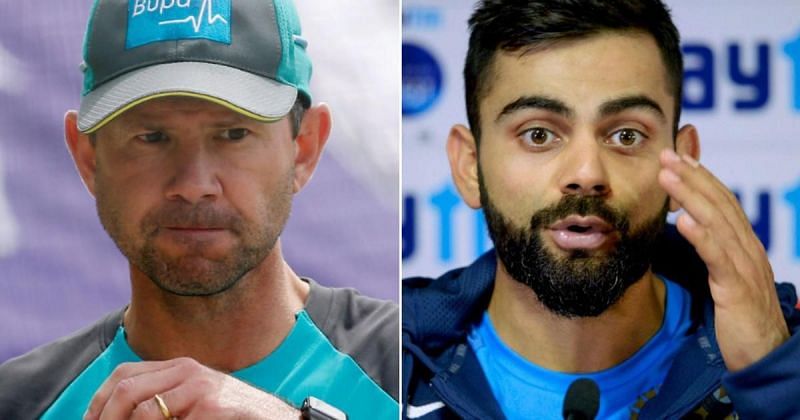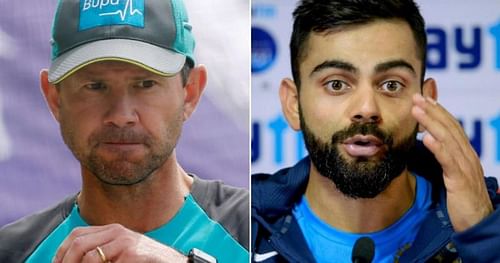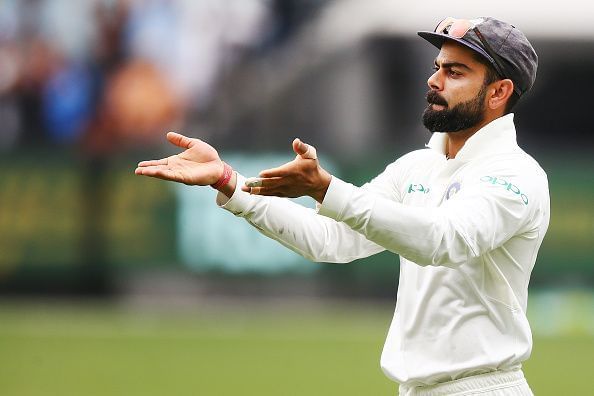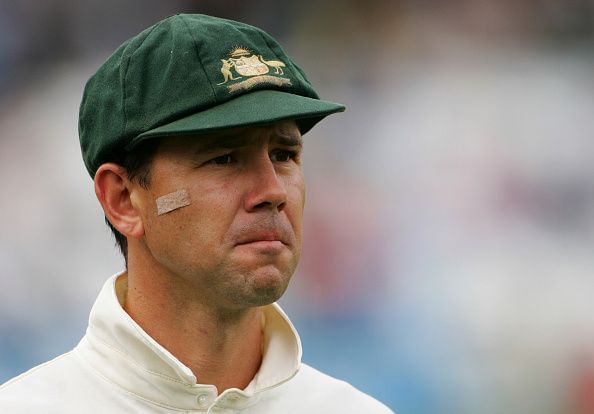
Art of captaincy: What connects Ricky Ponting and Virat Kohli

At the onset, let us clarify that one's maniac passion for the game and unbridled following of Indian cricket should not yet delude into believing in the equivalence of the current Indian team with the legendary Australian team at the turn of the millennium.
As such, this article is not drawing parallels between the Australian team of the mid 2000s and the current Indian team. Keeping up with both the sanity of mind and wholeheartedness, one shall accept that this Indian team is not yet a legendary team.
What this article attempts to do though is to draw parallels between the two captains who went on to lead (with great statistical success) teams that were better and beyond their proficiency as captains or putting it rather bluntly, deserved better captains.
Just as Ricky Ponting was, Virat Kohli is an absolute legend of the game. Players not only head and shoulder above most of their peers but also insanely potent to perform under pressure when it matters the most.
Ponting, in his prime, was challenged and probably bettered by only Sachin Tendulkar and Brian Lara. And while it may be too early to make a direct comparison across timelines and place at par, Kolhi is undoubtedly the best in the world at the moment.
In the company of the modern day fab four (alongside Steve Smith, Joe Root and Kane Williamson), Kohli is miles ahead of all other batsmen at present. The fact that both of them are great batsmen, however, must not mask the fact that both of them are pretty ordinary captains and have been leading or led teams that deserve better.
It has been for sometime now, a convention without logic, to handover the captaincy of the team to the best individual player in the team. There have hardly been exceptions to this from any team around the world, other than perhaps Graeme Smith, who captained Jaques Kallis (which of-course turned out to be a master stroke).
However, more often than not, these legends have turned out to be pretty ordinary captains. Quite often pundits have spoken and written about great players not being able to come down to the levels of expectation and capability of a normal human. None as frequently as in the case of Tendulkar himself.
Tendulkar, an unmatched legend of the game, was both motivational as well as tactically brilliant at once, as accepted by his teammates and coaches alike. For some reason however, he remained unsuccessful as a captain despite having served two separate stints at captaincy.
What probably went wrong, as pundits opine, was that Tendulkar was expecting of others as he would expect of him. This was impossible to realise. Pretty much as the Indian stalwart, Lara also did not enjoy as spectacular a time as the captain of the West Indies team although he continued in the role.
However, the cases of Kohli and Ponting are uniquely different. Neither are considered tactical geniuses of the game. While being Australia's best batsman coupled with internal politics (that ensured Warne remained the best captain that Australia never had) helped Ponting take over as Australian captain after Steve Waugh, a successful Under-19 World Cup along with his immense batting credentials helped Kohli to be earmarked for the role pretty early in his career.
These captains were however blessed with teams of immense richness that need not be captained well for results. This is an argument that is pretty much in the mold of many pundits disapproving of John Buchanan's role in Australia winning three consecutive World Cups. With immensely talented teams at their disposal, they claimed anybody could have achieved the same.
Captaining teams of numerous star players

Ponting captained a team in which each individual player could well be termed a legend in their own might. The bowling attack was led by Glenn McGrath and Shane Warne and ably assisted by the likes of Brett Lee, Nathan Bracken, Jason Gillespie and later Mitchell Johnson. Justin Langer, Damien Martyn, Mathew Hayden and of course Ponting himself led a formidable batting unit. And to complete it all, they had Adam Gilchrist behind the stumps.
A team like this did not really need to be captained on most days. The batting department could accumulate runs irrespective of conditions and opponents. The bowling unit meanwhile could effortlessly run through opposition's ranks.
Kohli sees himself in a near similar scenario albeit minor differences. While the team's Test batting overseas might still be heavily reliant on him, he is still supported by the likes of Cheteshwar Pujara and Ajinkya Rahane, who are both pretty capable batsmen themselves. In white-ball cricket, he has the support of Rohit Sharma and Shikar Dhawan among others.
The likes of Hardik Pandya have donned the role of the all rounder with decent success. And pretty uncharacteristically for an Indian side, they possess what is perhaps one of the best bowling attacks in the world at the moment. An attack, which irrespective of formats and conditions, can deliver the goods with the ball.
Top batsmen yet mediocre captains?

More often that not, there have been glaring deficiencies in the captaincy of both Ponting and Kohli, sometimes with disastrous effect. While the legendary Australian team was on many occasions capable of sailing over the rough tide by courtesy of their unmatched skills, the same is not the case with the current Indian team.
It is no secret that there was almost a mutiny in the Australian team post the loss at the Edgbaston Test during the 2005 Ashes in England. Having lost their pace spearhead McGrath to a freak injury just ahead of the game, Ponting gave his teammates a shock by electing to bowl first. Many regard this tactical blunder as the turning point of the series that saw Australia lose the Ashes for the first time since 1987.
On another instance, at a crucial juncture in the game at Nagpur against India in 2008 Border-Gavaskar Trophy, Ponting shockingly chose to bowl spinners to cover for slow over rate after having brought the match tantalizingly close at that point. He was effectively saving himself from getting banned for agonisingly poor over rates but conceding the impetus to India who went on to win the match.
Kohli, on the other hand, went in with a second spinner on a seam-friendly track at Lords and watched the match go up in fumes. More recently in the ongoing series in Australia, his wrong assessment of the conditions and misplaced excitement resulted in an all pace attack at Perth. On the same track, Nathan Lyon won the Player of the Match award.
While Ponting is often criticized for blindly taking decisions on statistical directions provided by John Buchannan as seen during the famous Edgbaston test, Ravi Shastri is often termed as someone who is a little more than a yes man to Kohli. The Indian coach does not have much tactical support to offer and is someone who is better off behind a mic in the commentary room.
It is a widely stated theory by pundits that a captain is only as good as his team is. Although true when stated as a fair generalization, every now and then we have seen examples in the form of an Australian team under Steve Waugh or an Indian team under Sourav Ganguly.
The Kiwis under Martin Crowe or the South Africans under Hansie Cronje also proved that there is more to a captain than that of the sum total of a team. Though discussions on Kohli's decisions and Shastri's tactical inputs have been questioned in the news for a while, it is relatively unknown as to why there were no official discussions or sessions about the coaching and captaincy within the BCCI.
It is perhaps due to the uncanny resemblance that Indians want to draw comparison between Sourav Ganguly - 'the fearless leader' - and Virat Kohli - 'the fearless team head'. In terms of aggression and outlook, the latter's accolades as a batsman have gone to super-human levels post his ascendancy as captain. Or perhaps due to the clout that Kohli the celebrity holds and the money that the brand brings for the BCCI.
No matter how much courage it may need or how inhumane it may sound (to the fans), it is perhaps time that one doff their hats to Kohli whose batting skills are out of the world. Perhaps, in the best interests of the Indian team, it could be better if he steps down from the captaincy. If it sounds too far fetched an idea, the BCCI must at least bring in a coach who can not only stand up to Kohli and point out his mistakes but is also able able to assist him tactically.